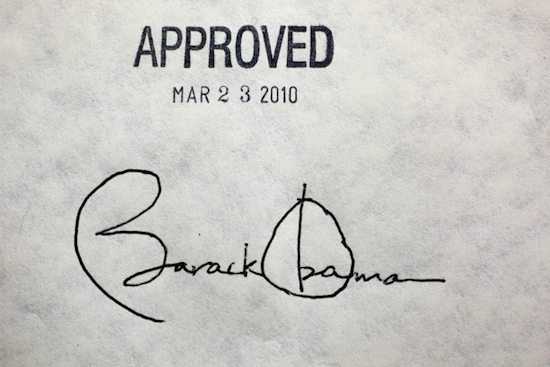Advancing Health Equity through the Affordable Care Act
No individual, or group of people, should face discrimination, especially when it comes to something so fundamental as accessing health care. Yet for too long, this has been the case. However, with implementation of the Affordable Care Act (ACA) in 2010, not only did the law provide new opportunities to access quality, affordable health coverage, but it established new civil rights protections in health care.
Earlier this month, the U.S. Department of Health and Human Services issued the much-anticipated “Nondiscrimination in Health Programs and Activities” final rule, otherwise known as Section 1557 of the Affordable Care Act (ACA).
Section 1557 builds upon longstanding federal civil rights laws by barring discrimination based on race, color, national origin, age, disability, and sex in our health care system. It applies nondiscrimination protections to all health programs that receive federal funding. Health care plans sold through the federal health insurance marketplace are covered under this law, as are hospitals, clinics, and other health care providers. Programs like Medicaid and Medicare are all covered under this provision as well.
Keep up with the latest from UnidosUS
Sign up for the weekly UnidosUS Action Network newsletter delivered every Thursday.
Before the ACA, civil rights protections had never been explicitly applied to health care. As a result, insurance companies and providers could do things like charge women more for the same coverage as men based solely upon gender, or non-native speakers could walk out of the doctor’s office without having their diagnosis explained to them in their language of origin. Section 1557 prohibits all these types of practices.
A few examples of what Section 1557 addresses include:
Language access
The rule prohibits discrimination based on one’s language of origin, and requires that health care providers have qualified bilingual and multilingual translators and interpreters on hand to assist people with limited English proficiency (LEP). No longer will LEP patients have to provide their own interpreters, or have their child attempt to explain a complicated diagnosis in the doctor’s office.
 Sex discrimination
Sex discrimination
Section 1557 prohibits discrimination on the basis of sex, which includes gender identity, making it the first federal civil rights law to prohibit sex discrimination in the health care context. This is particularly important to addressing the remaining barriers to coverage that LGBT people routinely experience.
Private right of action
For the first time, people who have faced discrimination in the health care system based on their age, race, ethnicity, sex, national origin, or disability, can file an official complaint with the Office of Civil Rights. This is an important protection that will help ensure that health care providers covered under Section 1557 follow the spirit of the law.
Since 2010, the ACA has helped more than four million Latino adults gain health coverage, many for the first time. Section 1557 protections not only apply to the newly insured under the ACA, but extend to tens of millions across the country. This rule further codifies the idea that everyone, regardless of race, gender, disability, or ethnic background, should be treated the same throughout the health care system.
For nearly 50 years, NCLR has worked to make certain everyone has an equitable opportunity to live a healthy life. The implementation and enforcement of Section 1557 provides another tool to advance this goal.


